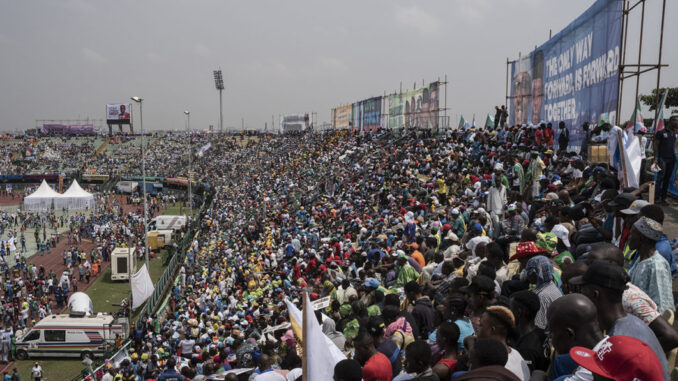
In less than two years from today, the clock would be winding down fast on President Muhammadu Buhari’s Administration. As the regime winds down, we are confronted with familiar problems – an economy that is in terrible shape, insecurity, social and ethnic conflicts.
That Nigeria is in a mess does not need anyone’s say-so. The indices, whether social or economic, are not good at all, and do not need a repeat here to make the point. If the country is working for the benefit of the political and business elite, it is clearly not working for the average Nigerian. Take the index of employment for instance, the figures tell the story in the street. The National Bureau of Statistics’ Fourth Quarter report for 2020 released mid-March 2021, puts Nigeria’s unemployment figure at 33.3 percent as at December 2020, with underemployment at 22.8 percent, which gives a total of 56.1 percent. What this means is that more than half of the working age population is either without jobs or doing jobs below its training or/and financial needs. This is a social problem that expressed itself in rather graphic terms during the EndSARS protests in October last year, when shops and warehouses were looted and the law gave way to anarchy. The scourge of kidnapping for ransom by bandits, reports of killer-herdsmen in bushes and farms across the country, add to a combustible mix that present us with a clear and present danger.
The current crisis has exposed the failure of leadership at all levels. In its stead, we have disparate interests pushing different agendas. So toxic is the messaging today from all the actors, including the political leadership, that we cannot even have a clear-headed conversation on the issues that need to be addressed. These issues include, but not limited to, our inchoate union, and why Nigeria’s greatness is measured only in its potential, why we have not made the transition from potential to greatness.
The Buhari administration says it has a handle on some of these issues, especially the spate of kidnappings and banditry across the country. It doesn’t appear so, however. If it does over the next two years before it winds up, that will be a boon indeed! The president sure needs to leave a legacy of good works to his name. But, given that the 2023 national elections are around the corner, Nigerians, however, are looking to what comes after the current administration.
We are at a point where we must carefully and diligently seek out a national leader with the temperament and skills to navigate the ship of State in an inclusive and result-oriented manner. That is because our redemption, if or when it comes, must be through politics. This, I know, does not give rise to optimism considering how broken our politics is today and our tendency to elect the worst of us. But there cannot be any salvation for this country outside a responsible and inclusive leadership with a pan-Nigerian outlook.
As usual, several names will be thrown up as we get closer to the 2023 election, among them the good, the bad, the ugly. Some of the aspirants will burnish their jaded pro-democracy ‘credentials’, others their ‘experience’, and yet others will come with an entitlement mentality.
At a time like this, when we are assailed by ethnic distrust, overwhelmed by social and economic problems, buffeted by threats of secession, we need to focus on leadership because, as we can all relate, it is the key to dousing the tension and redirecting our collective national focus toward development issues. In 2023, we need that person who can reach across social, class and political aisles to create a national conversation of inclusion. It is perhaps needless to add that the first step to getting Nigerians to speak with one voice again is to get a leader who speaks the language of inclusion, and walks the talk.
No doubt, many names will surface as the rules for the 2023 presidential contest in the parties become clearer, but we can see an understanding that the presidency would shift to the south. That should be sacrosanct, as Katsina State Governor Aminu Masari stated recently, after eight years of the Buhari Presidency.
• Awowede, a journalist and public commentator, lives in Warri, Delta State
END

Be the first to comment